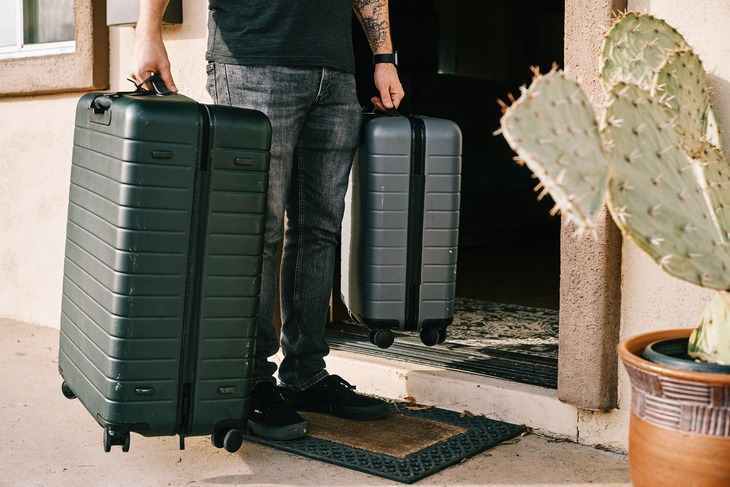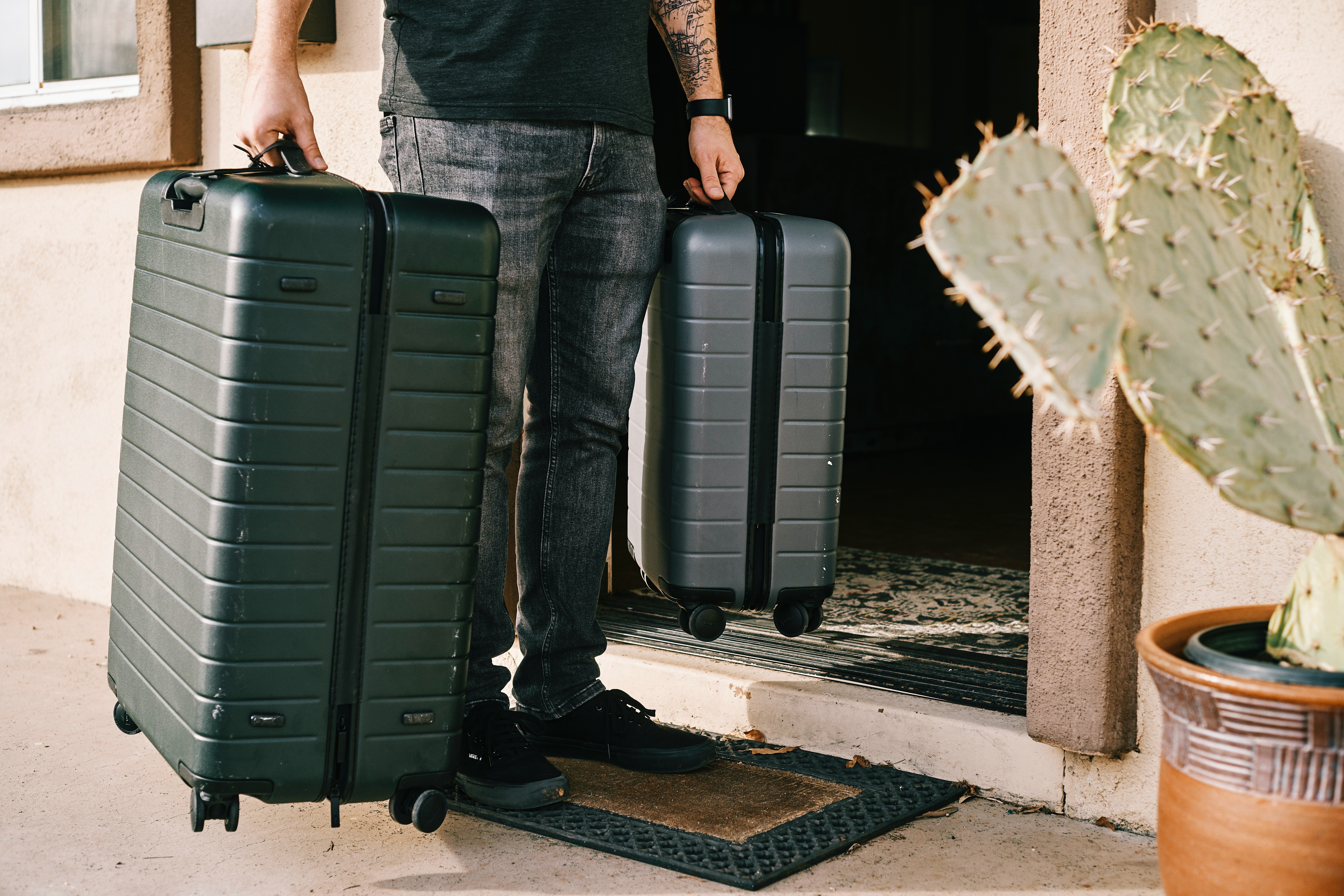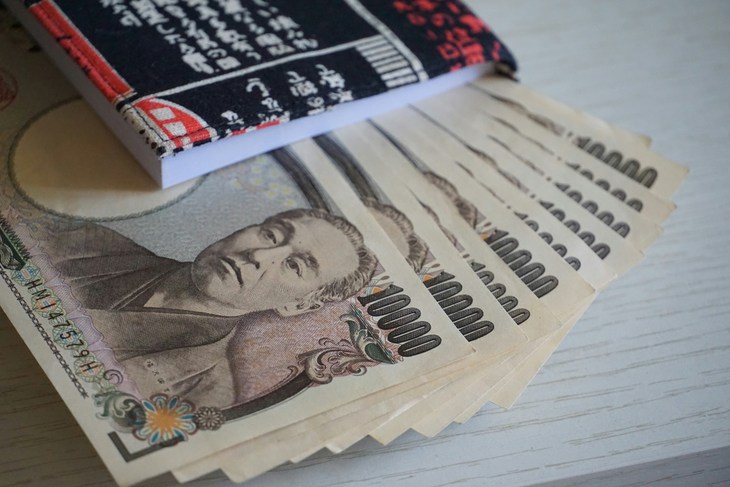Moving to Japan? Here's How to Make Your Move as Smooth as Possible
Finally committing to making the move to Japan is an exciting, wonderful moment. But once you're officially set to come here, how do you start to prepare? Picking up your whole life and moving to a new country is a challenge no matter where you move to, and if you're coming from across the world to move to Japan, it can be hard to truly understand the amount of work that may go into the move itself.
While that move date may still be months away, starting to prepare now will help make moving to Japan as painless as possible for you. So let's take a look at how to prepare for your move to Japan, how to choose a moving company if you need one, and talk about things you should absolutely do once you arrive so that your new life can get off to a smooth start.
Preparing for Your Move
Leaving packing and making arrangements for your move to Japan until a few weeks before leaving will just end up causing you a world of trouble. Planning out what you need to do and when you need to do it will help you avoid any last-minute panic. Here's a basic timeline you can follow so that you aren't rushing to finish your preparations with only one week left before moving to Japan. You don't need to strictly stick to this timeline, so feel free to think of it as more of a guideline you can use to keep yourself on track.
90 Days Before Your Move:
Depending on how you are going about moving to Japan, you may need to hire a moving company to help with your international move. You'll want to start researching moving companies early and get quotes to find an option within your budget. This is especially important if you are planning on bringing any large items to Japan, such as furniture.
If you're moving to Japan during a busy time of the year (in Japan this is usually around the end of the year or spring), you may end up in a situation where all the moving companies are already booked. That's why you should start the research process as soon as possible, especially if you are going to be bringing a lot of stuff with you to Japan.
70-80 Days Before Your Move:
Time to start packing! Take some time to organize all of your belongings into things that you need to bring, things you want to bring, and things that you don't need. Now is a great time to throw away anything you really don't need so that you can lighten your load! Moving to another country takes a lot of time, effort, and money, so you need to think deeply about how much luggage you want to bring with you. Riding a train to your new home from the airport with three giant heavy suitcases will not be fun for you, so if you can keep your load light, it's probably a good idea to do so.
50-60 Days Before Your Move:
If you are planning to bring a lot with you to Japan, it may be worth shipping some of it well in advance of your move. If you are going to do this, make sure that you understand all the rules about customs, duties, and taxes so that you don't send anything you shouldn't or otherwise get in trouble with customs. You can learn more about Japanese customs here.
Of course, if you're only planning to move to Japan with a couple of suitcases worth of clothes and goods, then you can definitely skip this step.
30-40 Days Before Your Move:
If you haven't already, you should start taking care of any last-minute administrative business where you currently live. Inform your landlord of your move, and cancel any utilities or other bills so that they don't keep charging you after you've left the country.
With all the excitement of preparing for your new life in Japan, it can be easy to forget to do some of these things or to leave them until the very last minute. Doing that might end with you getting charged more than you would have if you had taken care of these things early, so don't forget about them!
One Week Before Your Move:
If there's any final cleaning or other move-out procedures you need to do for your current apartment, be sure to check with your landlord and take care of that now. If you'll be working for a company in Japan, now is also a great time to buy some snacks for you to bring to your workplace to make a good first impression on your new coworkers. Famous local snacks or delicacies from where you live are always a great choice.
This is also a great time to do some research about public transportation in Japan! Since Japan's public transportation system is very well-developed and extremely convenient (especially in large urban areas) you'll likely be able to make it from the airport to your new home by train, subway, bus, or some combination. Look into fares and how to pay for public transportation, along with any routes you need to take, so that once you land in Japan you don't get lost right away.
Besides that, just make sure that you've finished packing and that all your moving arrangements are in place so that the day of the big move doesn't end up being too chaotic.
Choosing a Moving Company (If You Need One)
If you're truly moving your whole life to Japan, then your best option may be to hire an international moving company to help you make the move. This can be especially important if your move to Japan is permanent or you have a family you are moving with.
There are so many different moving companies out there, so choosing the right one for you can seem overwhelming. So let's look at things you should consider when choosing a moving company to help you move to Japan.
If you don't have any need for a moving company, feel free to skip ahead to the next section!
・Do They Offer Foreign Language Support?
If the moving company can't communicate well in your language and Japanese, it could make the whole moving process much more difficult. Be sure to confirm that the company can communicate in the same language as you.
・Do They Have Experience Moving People to Japan?
Be sure to choose an international moving company that has experience helping people move to Japan. If they don't, it could mean that they won't know how to handle any unexpected Japan-specific problems that may arise. It also means they may not be able to answer a lot of questions you have or give you accurate information that you need to know about moving to Japan.
・How Much Support Do They Offer?
Different international moving companies have different plans and levels of support that they can offer you. Before you sign any contracts, make sure that you clearly understand the specifics of what the company will do for you before, during, and after the whole moving process. Will they take care of all the paperwork at customs? Will they help you unpack large or small items once you arrive in Japan? These kinds of support can help make your move much less of a headache, so try to choose a company that will take care of a lot of this for you if you can.
What to Do Once You Arrive
Congratulations! You've made it to Japan and hopefully, all of your stuff arrived with you in one piece. Now's the time to look over all the items you shipped over or brought with you and make sure nothing is damaged. But before you start settling into your new life, here are some other things you should try to do as soon as possible to make your new life in Japan easier.
・Register Your Move at Your City Hall
When you first move to Japan, and any time you move after that, you need to notify your local ward office or city hall of your new address within fourteen days of moving. You should try to do this as soon as you have the time so that you don't get into any trouble later on.
When you go to the city hall or ward office, make sure to bring your new Residence Card you got at the airport, your passport (you may not need this but it is worth bringing just in case), your new address, and a phone number. If you don't have a phone number yet in Japan, you can possibly use your home country's number or the phone number of a coworker or the company you work for.
City halls and ward offices in big cities will often have translators available to help you if you don't speak Japanese but be sure to check and make sure. You may need to ask for a translator in advance, so keep that in mind as well.
・Register for Health Insurance
If you moved to Japan to work full-time for a company, then they will most likely take care of registering you as part of their health insurance and you won't need to do anything. But if that is not the case, you should register for Japan's National Health Insurance while you are visiting the city hall to register your new address. In Japan, you must be covered by health insurance, whether it is through your company or through the government.
You can learn more about the different kinds of health insurance in Japan here.
・Open a Bank Account
You should try to open a Japanese bank account as soon as you can. You'll be able to have your salary deposited directly to the account, and utility bills can often be paid by direct withdrawal. If you are working for a Japanese company, they may take you to a bank to help you open an account, since the process can be complicated if you don't speak Japanese or there are no English-speaking staff at the bank.
Things to Know About Japanese Moving Culture
Japan has some unique traditions surrounding moving into a new apartment or home that are worth knowing if you want to make a good impression on your new neighbors. You never know when you may need your neighbor's help, so let's look at some of these moving traditions.
・Greeting Your New Neighbors with a Small Gift
While not everyone does this anymore, traditionally it is customary to give a small gift to your neighbors when you first move in. If you are living in an apartment, you would be expected to greet the people on either side of your apartment, your neighbors in the units directly above and below yours, and your landlord. You never know when you might need a neighbor's help, so it's a good idea to connect with them and make a good first impression if you can.
But what should you give your new neighbors? Traditionally soba noodles used to be the most common gift, but this practice has largely been replaced by giving small useful household items like dish towels or even laundry detergent. Snacks would also be a fine choice. You don't need to spend a lot; 500-1000¥ per gift per household is more than enough.
・Joining the Community or Neighborhood Association
Your apartment building or local neighborhood will likely have a Community or Neighborhood Association run by your neighbors. The basic idea is that these neighborhood associations perform various duties to keep the apartment building or neighborhood clean and safe. This may include cleaning garbage disposal areas, fundraising for maintenance, hosting local festivals, and so on, but it depends entirely on the neighborhood association.
Joining the neighborhood association is usually optional, but if you do choose to join you will likely need to pay a small monthly or yearly fee. It may not be a bad idea to join the local association as a way to connect with your new neighbors and become a closer part of the community.
Get Started Early!
If you're moving to Japan, especially without the support of a company providing housing for you, there is a lot you need to take care of before and after you move. So as soon as you confirm when you are going to move to Japan, start preparing! It will save you so many headaches closer to your move date.
Good luck with the move, and enjoy your new life in Japan!



























